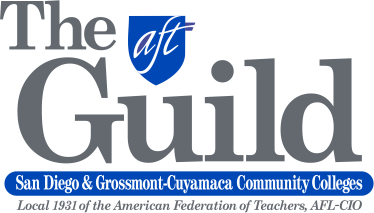The COVID-19 crisis and subsequent economic collapse along with the national uprising against police brutality and systemic racism have cast a glaring light on the nature of American inequality on the healthcare, criminal justice, and economic fronts. It has never been clearer that as most Americans struggle, the elite thrive. As a Forbes piece put it back in April, “Billionaires are Getting Richer During the COVID-19 Pandemic While Most Americans Suffer”:
According to the Institute for Policy Studies, billionaire wealth has boomed, while over 26 million people have filed for unemployment since mid-March. The percentage of taxes paid by billionaires has fallen 79% since 1980. From the start of March to now, the group of billionaires’ total wealth has increased by $308 billion. Billionaires boast a combined net worth of $3.229 trillion and their collective wealth skyrocketed up 1,130% between 1990 and 2020.
An Americans for Tax Fairness analysis in May noted that the net worth of billionaires has risen by 15% during the biggest economic downturn since the Great Depression. All of this as the poorest Americans, disproportionately people of color in the service, hospitality, and healthcare sectors, have either lost their jobs or are risking their health performing essential frontline services.
Adding insult to injury, the CARES Act has done more to help large corporations than ordinary American workers. Just as was true after the last economic crisis, Wall Street is benefiting at the expense of Main Street. And now, as the economic crisis hits state and local budgets, it’s ordinary Americans who are being asked to pay the price into the future.
California is currently facing an unprecedented budget deficit of over $54 billion. Over the summer, the Governor proposed devastating cuts to education and critical social services that serve the most vulnerable. In response to this, as the LA Times reported:
Legislators persuaded Newsom to largely replace the cuts he proposed last month to some of the state’s core programs with an assortment of other budget-balancing solutions: delayed payment plans, borrowing from various internal funds and more optimistic tax revenue estimates. The final agreement also relies heavily on cash reserves, withdrawing almost half the money in California’s $16-billion “rainy day” fund . . .
The budget authorizes up to $12.5 billion in school funds — some of it owed now, most in the new fiscal year — to be paid late through a system of “deferrals” last used during the Great Recession. School districts will be mostly on their own to replace the missing dollars, either by tapping district reserve funds or taking out loans. The state agrees to pay back the borrowed money down the road.
Sadly, the legislature’s response to the Governor’s budget kicks the can down the road and really amounts to giving more time for aid to arrive from the Federal government.
In sum, unless Congress delivers a package significant enough to save the day, which seems increasingly unlikely, California will be thrust into crushing austerity for years to come. On the surface, our Democratic Governor and legislative leaders can blame the Trump Administration and the Republicans in the Senate for punishing the states and demagoguing about “blue state bailouts,” but the fact is, even with the animus in Washington, it doesn’t have to be this way.
This is why, with the legislature having ended their session with no new revenue sources in the offing, CFT, CTA, SEIU, and others have been calling for the Governor to call a special session of the legislature on revenue in order to address this impending fiscal crisis.
What can California Democrats do if either deeply inadequate or no new relief at all for cities and states comes to fruition? They can rise to the historical moment, realize that they hold a 2/3rds majority, rediscover their New Deal legacy, and tax billionaires to save the future of the state from devastating blows to education, social services, and the economy.
One out of four of the aforementioned billionaires who have reaped huge gains while America suffered lives in California. At a time when the COVID-19 crisis has thrown gasoline on the fire of America’s obscene level of inequality, the state budget should not be balanced on the backs of our communities, our students, the most vulnerable, and the essential workers who have been the heroes of the pandemic.
What kinds of revenue measures are possible?
*A Billionaire Wealth Tax or Net Worth Tax would bring in $18.5 billion a year. This assumes a 1% tax on net worth above $50 million and 1.5% above $1 billion.
*An Unrealized Capital Gains Tax (or annual withholding tax) would bring in $10 billion a year by implementing a 1% withholding on unrealized gains over $10 million.
*A Highest Earners Surtax would bring in $3.4 billion a year by imposing a 1% surtax on income over $2.5 million.
It’s either this or a grim future for our state for many years to come. As Chris Hoene of the California Budget and Policy Center observes:
Drastic austerity measures could endanger the public health response to the COVID-19 pandemic and increase the intensity of the economic downturn. Worse, they would likely prolong the impacts of the crisis and make it harder for Californians and their governments to regain their financial footing. What’s more, austerity measures would exacerbate income inequality and systemic inequities that permanently leave people of color, undocumented residents and households with low-incomes locked out of our state’s prosperity.
We can and must do better. It’s gut check time in the Golden State. Will California Democrats have the political courage to do the right thing?






0 Comments